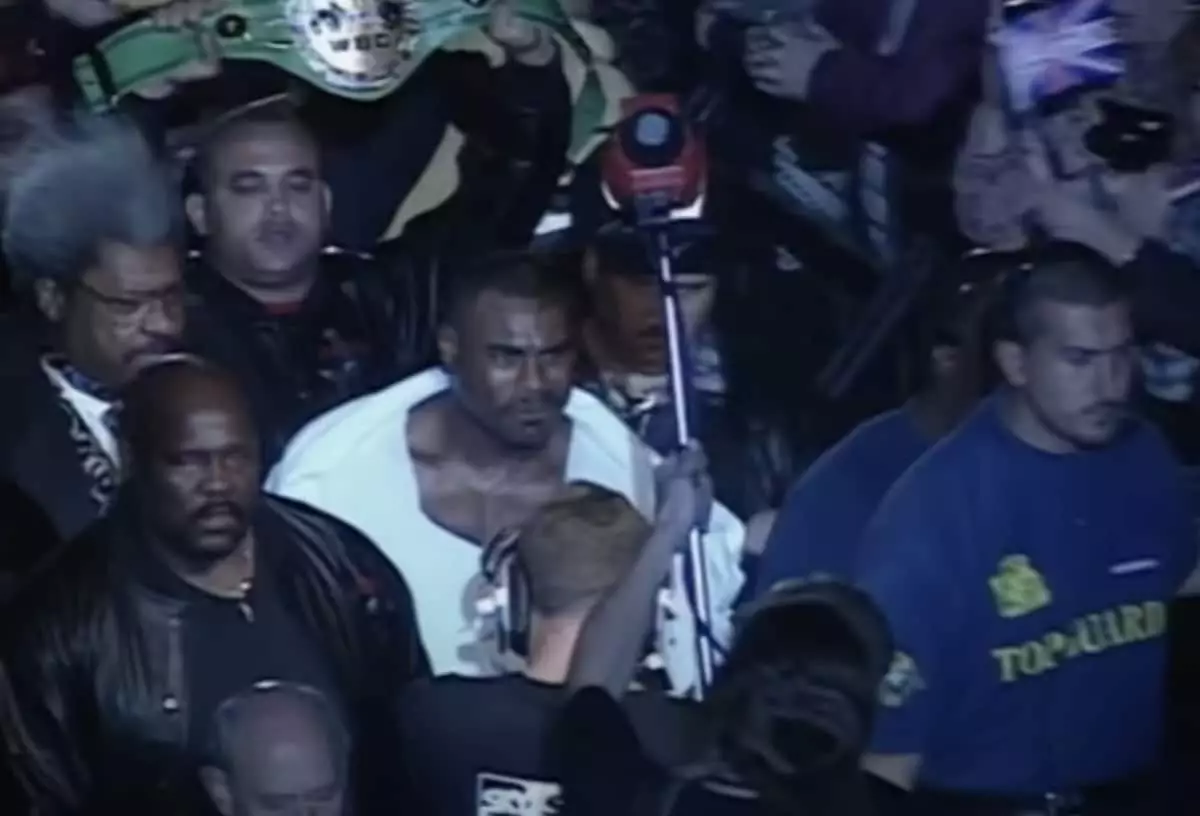BY BOXING HIT STAFF-
In 1994, after a lengthy hiatus, the British boxing scene welcomed back a heavyweight champion of the world, and this milestone was achieved by none other than Lennox Lewis. Born in London before migrating to Canada at the age of 12, Lewis accomplished a remarkable feat by becoming the first British fighter to earn a world heavyweight title since Bob Fitzsimmons. This victory not only reignited national pride in British boxing but also laid the groundwork for discussions about identity in the sport. Was Lewis Canadian as some proclaimed, or did his lineage and success firmly root him in British boxing folklore?
Lewis’s journey to the heavyweight title was marked by fierce competition and unrelenting determination. His victory over Tony Tucker in 1993 earned him a version of the heavyweight crown, which had been disregarded by Riddick Bowe. Regardless of the title’s status, Lewis’s achievement was monumental at a time when British fighters struggled to make a mark in the heavyweight division. Critics may have pointed out the technicalities behind his title win, yet Lewis’s skills and attributes posed the question: could Britain finally boast a heavyweight champion capable of competing at the highest level?
The conversation around Lewis transitioned from his nationality to his potential; boxing critics began speculating if he could be the best heavyweight in the world. It was a tantalizing thought that would soon face its first major challenge.
Lewis’s ascent to greatness met an unexpected hurdle during a bout against Oliver McCall, a fighter known both for his toughness and the brilliance of his trainer, Emanuel Steward. The fight was a critical moment for Lewis, who was making the third defense of his WBC title. Steward’s mastery shone through as he devised a strategy that capitalized on Lewis’s tendencies, instructing McCall to counter Lewis’s right hand immediately upon his release. This advice turned out to be effective, as McCall managed to connect a powerful counter.
The second round became pivotal. As Lewis executed his right hand, he left himself vulnerable and was floored by McCall’s response. The knockout was staggering—not only for Lewis but also for the audience who witnessed the sudden shift in momentum. It was a harsh lesson in the vulnerability that can exist even at the highest echelons of sport, but it also became a catalyst for transformation in Lewis.
Post-defeat, many questioned Lewis’s future in boxing. Could he recover from such a decisive setback? With the mentorship of Steward, who emphasized the importance of technical prowess and mental fortitude, Lewis gradually rebounded from his loss. His evolution as a fighter was remarkable, as he demonstrated resilience and commitment to improvement. Armed with newfound skills and determination, Lewis took on a renewed persona, showcasing a refined combination of strength and strategic finesse in subsequent fights.
While Lewis’s road to redemption was underlined by hard work, the implications of his success extended beyond personal accolades. His comeback reshaped the narrative around British heavyweight boxing and set the stage for future generations. The landscape was changing, and with a victorious Lewis once more in the ring, British boxing began to reclaim its legacy.
Fast forward to the present day, and the boxing world is witnessing another British heavyweight, Anthony Joshua, experiencing his own trials. Although at one point Joshua was compared to Lewis, the stark differences in their journeys are evident. Joshua’s recent defeat to Daniel Dubois stirred comparisons between the two fighters, revealing how narratives can shift in the boxing arena. As Lewis overcame his challenges, the pertinent question remains whether Joshua can channel the same resilience and emerge from his setbacks.
Lennox Lewis’s career stands as a testament to how determination, guidance, and self-belief can transform setbacks into opportunities for redemption. His story remains a vital chapter in the annals of British boxing—a reminder that true champions learn, adapt, and ultimately inspire future generations to strive for greatness. As the sport continues to evolve, Lewis’s legacy persists, encouraging today’s fighters to pursue excellence against all odds.


Leave a Reply